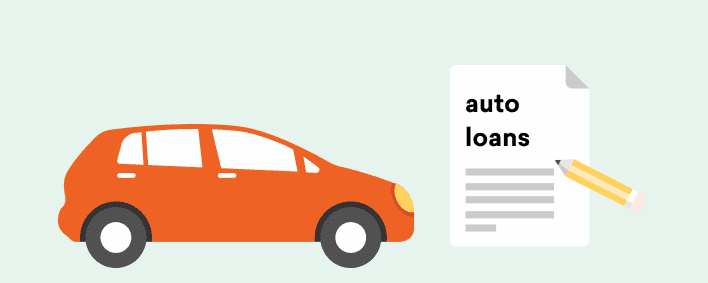Cars are expensive, and if you’re shopping for one, you may be curious to know if you can use a personal loan to finance that purchase. While the answer is technically yes, there are some good reasons to choose an auto loan instead, such as a lower annual percentage rate (APR) and higher loan amounts. But for some cars, a traditional auto loan isn't an option — say on a classic car or one older than 10 years. In these cases, a personal loan might give you the means to get the wheels you need (or want).
Can I use a personal loan to buy a car?
While a personal loan can be used to finance a car, it’s not common and isn’t usually the best option for most late-model vehicles. Auto loans have specific features that make them a better choice for purchasing a car.
Personal loans have higher APRs on average, meaning your monthly payments are likely to be higher. Also, as personal loans are generally unsecured and based on your credit profile, it may be difficult to qualify for the total amount you need — the average price of a new car was more than $48,000 in June 2023, according to Kelley Blue Book.
Auto loans are usually secured by the car you're purchasing, meaning the lender can repossess your car if you default on the loan. While that makes it very important to keep up with your payments, it also lowers the risk to the lender and means that auto loans on average offer lower rates than personal loans and higher loan amounts.
When should I use a personal loan to buy a car?
Sometimes a traditional auto loan isn't available to meet your car-buying needs. There are several scenarios where it might make sense to use a personal loan to buy a car instead.
- Buying from a private seller: If you're buying a car from a private seller, it may be best to use a personal loan if you don't have the cash on hand to make the purchase, especially since most banks or credit unions may not offer the option of a private-party auto loan.
- A classic car: Most traditional auto loans are for cars less than 10 years old, so if you're buying an older car, you may want to consider a personal loan. However, some lenders (such as LightStream) may offer classic car financing that is more specific to your purchase.
- A restoration project: Instead of buying a new or used car, you may be looking for a personal loan to fund your restoration project of an older car. Some banks and credit unions offer restoration loans, similar to classic car financing.
- You don't want to make a down payment: Most dealerships expect a down payment on your car. A good rule of thumb is at least 20% for new cars, and 10% for used, according to Progressive. So if you want to avoid that cost, a personal loan may be a better option.
- You have a low credit score: If you have poor credit, you may not qualify for an auto loan. However, it's not guaranteed that you'll qualify for a personal loan either. Some lenders specialize in lending to those with low credit scores, but your APR will likely be higher, making the cost of the loan more expensive. It's best to improve your credit before using a personal loan to buy a car.
Check Out: Secured vs. Unsecured Personal Loans
Personal loans vs. auto loans
A personal loan gives you a lump sum upfront, allowing you to spend it however you like, within the parameters set by the lender. Auto loans are more similar in many ways to mortgages than personal loans:
- Down payments are sometimes required and can help you lower the cost of the loan overall.
- The loan is secured by the vehicle you’re purchasing.
- You’ll need to insure the car over the life of the loan.
Learn More: Personal Loans vs. Auto Loans
Compare personal loan rates
Pros and cons of using a personal loan to buy a car
While auto loans are usually the better option for a car purchase, personal loans have some benefits as well.
Pros
- More flexible: Auto loan funds come earmarked specifically for the car you want to purchase, while personal loans can be used for nearly anything. If you want to buy a used car for $25,000 and make some repairs to your home for $10,000, you could theoretically take out a personal loan for $35,000 and do both.
- Not secured: Auto loans are secured by the car itself, meaning that if you don’t make your car payments, the lender may repossess your car. Personal loans are generally not secured, so if you find yourself unable to make your payments, the only damage is likely to be to your credit score.
- No down payment needed: While not all auto loans require a down payment, many do. If you don’t have that cash on hand, a personal loan can help you avoid that step.
- Comprehensive coverage not required: Unlike a traditional auto loan, you may not be required to carry comprehensive coverage if you use a personal loan to buy a car.
Cons
- Higher interest rates: On average, personal loans have higher interest rates than auto loans. That makes sense when you consider that personal loans are usually not secured, which makes them riskier for lenders, while auto lenders may be able to recoup their losses by repossessing your car. But higher interest rates usually mean that you’re spending more to borrow the same amount.
- May have higher monthly payments: Because personal loans often have shorter terms than auto loans, the monthly payments can be higher. Make sure you’re able to comfortably afford the monthly payment for the life of the loan.
- May not qualify for a large enough amount: Another consequence of not being secured, large personal loans may be difficult to qualify for if you don’t have an excellent credit score.
See Also: How To Get Approved for a Personal Loan
Tips for choosing the right personal loan to buy a car
If you’ve decided that a personal loan is the best option for financing your vehicle, here are some things to keep in mind when shopping for a lender:
- APRs: The annual percentage rate (APR) indicates the total cost of your loan, so take your time to research different lenders and rate-shop. A 48-month loan of $50,000 with a 10% APR will cost you about $10,870 in interest over the life of the loan — the same loan with a slightly higher APR of 14% will cost you about $15,584. You can save hundreds, if not thousands, of dollars just by shopping for lower interest rates.
- Fees: Many personal loans charge origination fees, a percentage of your loan that is often taken out before you receive the money. Lenders may charge other fees as well. Carefully review the terms of any loan and make sure you’re factoring the fees into the total cost of the loan.
- Repayment terms: The repayment term is how many months you will be repaying the loan. Usually, the longer the term of your loan, the higher the total cost. On the other hand, shorter terms usually come with higher monthly payments, which can be difficult to afford. It’s generally best to choose the shortest term you can afford to save money on interest.
- Credit score requirements: Since most personal loans are unsecured, your credit score is a huge determinant of how much money you’re allowed to borrow and how competitive of an interest rate you’re offered. It may be worthwhile to take some time before buying a car to improve your credit score — it could save you money.
- Cosigner option: A cosigner is someone with a better credit score and history than the borrower, who will take on shared responsibility for the loan. A cosigner doesn’t share the ownership of the car or split the proceeds of the loan with the borrower — they just take on the risk of the loan and agree to cover the payments if the primary borrower can’t. If you have a friend or family member who will cosign a loan for you, it may help you qualify for a better interest rate, but not all lenders offer cosigner options.
How to apply for a personal loan to buy a car
Here’s how to apply for a personal loan:
- Check your credit score: Since a credit score is so crucial to getting a low APR, make sure your credit score will qualify you for the best rates out there. Pull your credit report and see if there are any errors to dispute.
- Prequalify with multiple lenders: Prequalification is a relatively quick process that gives you a sense of rate and loan terms you could qualify for. Prequalification requires a soft credit pull and won’t ding your credit, but it's not an offer of credit. The final rate you get could differ.
- Compare terms: Once you’ve prequalified with multiple lenders, compare APRs and loan terms. Note which have origination fees.
- Finalize your application: Once you’ve decided which loan is right for you, finish your application. You can expect to provide a government ID, proof of income, and other documentation. This will trigger a hard credit inquiry, which will likely ding your credit score temporarily. Read the fine print before you finalize the paperwork.
- Prepare for repayment: Once your funds are disbursed, you can purchase your car. But don't forget to note when the first payment is due. Consider setting up auto payments or calendar reminders to help prevent missing a payment.
FAQ
Can I use a personal loan to buy a car with bad credit?
Open
When would it make sense to use a personal loan to buy a car?
Open
Does applying for a car loan hurt my credit score?
Open
Is a car loan cheaper than dealer financing?
Open







